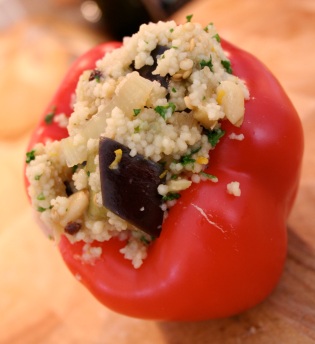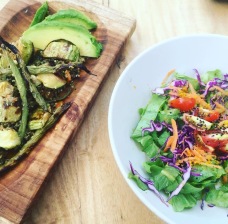
In the modern health world, what is considered healthy or not is constantly in flux. One day eggs are good, the next day they’re bad. One day going vegan is the answer to longevity, and the next day animal fat is the key ingredient to health.
So, What the F**k are we supposed to eat??
It has become increasingly difficult and more confusing than ever to know what diet is individually appropriate. What will give us the results we want? What is suitable to maintain long term health? With the growing number of "diets", nutritionists, wellness coaches, health professionals and biohackers, everyone seems to have a different take.
It’s common for them to use language such as:
- This diet will make you really healthy
- You’ll live a really long time
- This xy or z will make women really skinny, or will help men to build muscle & virility
- If you don’t eat “this way,” you’ll suffer
- Here’s the scientific proof that this nutritional approach is “right”
Of course we want to be healthy, strong, and at our ideal body weight. It’s okay to desire to look and feel well, but these types of statements can often be misleading. If we are already in a vulnerable place of feeling unwell, it’s easy to go down the Google-search rabbit hole. This can snowball into attaching yourself to a particular diet that might not actually be suitable to your specific needs or the imbalances at hand.
Perhaps one of the most unique things we can learn from the ancient teachings of Ayurveda is that there is no one standard diet. Each and every one of us has a unique constitution, lifestyle, and background and therefore what will work best for us will be highly individualized.
A good approach in determining the best meal plan that works for you is to first understand what the different diets out there are, decide what resonates with you, what the benefits are, what are the potential side effects, and then how can you fine tune the diet to be appropriate to your specific constitution. Another way to look at would be to ask the question: What would Ayurveda say?
This may sound like a lot of work, but luckily we’ve given you a head start. Keep reading to learn more about some of the most current health trends, and how using an Ayurvedic approach can lead to a more balanced plate.
Keto
The ketogenic diet is made up of eating mostly fats, a moderate amount of protein, and a very minimal amount of carbohydrates. Eating a high amount of fat and very few carbohydrates will cause your body to go into ketosis. Ketosis a metabolic state where your body burns fat instead of carbs (or glucose) for fuel. This can be very beneficial for certain types of bodies. Especially if it is applied as a short term protocol or in cyclical manner.
Who would benefit from a ketogenic diet?
If you are insulin sensitive, struggling with high levels of inflammation caused by the “standard American diet” (that is if you are eating high amounts of white sugar and flour), or if you’re looking for a quick reset and you can tolerate high amounts of fat and protein this diet could be helpful. It’s interesting to note that the ketogenic diet was actually developed as a treatment for epilepsy in 1921 by Dr. Russel Wilder, MD, of the Mayo Clinic. He and his team determined that this particular diet could stop seizures and also slow the rapid growth of a lethal brain tumor. This shows that eating in the ketogenic style is and should be used as a therapeutic treatment and not as a long-term plan.
Who is it not suitable for?
If you are undergoing any type of extreme stress, extreme Vata imbalance, or hormonal issues (thyroid regulation or menstrual irregularities) this diet can have some serious negative long-term effects including mood disorders, increased cortisol levels, and it can even lead to weight gain. So, it’s best if this diet is approached with caution, especially for women. As women, we need a certain amount of carbohydrates to produce enough estrogen in order to keep our cycles regular. As Lara Briden, Doctor of Naturopathic medicine, points out in her findings, in a clinical trial on the ketogenic diet for women, 45 percent of the female participants lost their periods within six months.
What would Ayurveda say? The ketogenic diet may have some benefits and could be used as a short-term treatment for some, but too much fat and too much animal protein is hard on your digestive system. We know that animal protein takes longer for the body to digest therefore it sits in your gut longer creating more TAMAS that the body has to deal with later. Going full Keto is similar to carnivore-heavy diets, focusing on consuming large amounts of meat with little to no grains, legumes, or fruit. In Ancient Ayurveda, grains, legumes, and fruit are actually more Sattvic and are the foods that are essential to creating health and balance.
Whole 30
The Whole 30 diet is somewhat similar to a ketogenic approach, but not quite as extreme with the limited carb intake. The diet consists of eating meat, seafood, eggs, vegetables, fruit, and fats. While eliminating foods such as dairy, sugar (including natural sweeteners & alcohol), all grains, and legumes. The idea is that you will only be consuming whole and unprocessed foods.
Who would benefit from this diet?
If applied short term the Whole 30 diet is suitable and especially appropriate for someone who is insulin sensitive (that is if you didn’t go overboard with the fruit) or if you are targeting certain health goals.
What would Ayurveda say?
Similarly to the ketogenic diet, it may be beneficial to some and could be used as a short term treatment, but again too much fat and too much animal protein is hard on your digestive system. Ayurveda is also a big proponent of utilizing all the food groups. Any time we completely eliminate multiple food groups for long periods of time you could be setting yourself up for more imbalance.
Veganism
Eating a vegan diet is the complete abstinence from all animal products. The idea is that you are 100% plant based: No dairy, meat, eggs, or any other animal products are permitted. Veganism is often a popular dietary approach in the Yoga community due to the ethical reasons of Ahimsa (non-violence).
Who would benefit from this diet?
Anyone who is consuming meat from the US industrial farming industry would highly benefit from this diet. If you are unsure where your meat products are coming from chances are it is best to avoid them. The current industrial meat industry is having detrimental effects to the environment, to our digestion, our cardiovascular health, joint health, and is the root cause of many other inflammatory diseases. Adapting a vegan diet would also be beneficial for anyone experiencing high levels of inflammation or extreme Pitta disorders.
What would Ayurveda Say?
Similar to all the diets mentioned, whenever you completely eliminate a food group it’s possible you may experience more imbalance. One of Ayurveda’s key ingredients for medicine happens to be an animal product: ghee. Ghee is suitable for all the doshas. It helps to assist in digestion, it keeps your organs and your joints lubricated, it aids in healthy skin, and has many other beneficial properties. There are also many nutrients missing from a vegan diet that would then need to be supplemented if this diet were applied. These nutrients include:
-
- zinc
- iodine
- vitamin A
- iron
- vitamin D
- vitamin K2
- coenzyme Q10
- choline
- Omega 3
- vitamin B2
- vitamin B6
- vitamin B12
So, while there are some people that may benefit from a vegan diet, unfortunately many of us perform better by adding a small amount of high quality animal protein to our diets. Additionally, in reference to the ethical reasoning for eating a plant-based diet we can best understand this by looking to the Hindu philosophy of Ahimsa - nonharming.
How we can practice Ahimsa in our day to day life has so much to do with feeling healthy, clear, and whole. In order to show up as our best selves, this could mean that we need to incorporate animal products into our diets at certain times of the year in order to maintain balance. His Holiness the Dalai Lama, who probably teaches and lives most in the philosophy of Ahimsa has recently adopted the utilization of meat into his diet. Perhaps the best way to approach Ahimsa is NOT with hard and fast dietary rules, but with the question - “How can I do the least amount of harm?” And, “How can I contribute to care-taking the earth/sustainability with my food choices.”
Our diet is truly at it’s best when we are able to eat food in a way that makes it medicine, and promotes a healthy ecology for us all.

Conclusion
For many of us in the health and food world, what we eat can often be so intertwined with how we identify ourselves. This can become especially dangerous when the diet we may identify with is no longer serving us. What I have found to be the most helpful is to avoided extremes, be gentle with yourself when discovering what foods are and aren’t contributing to your overall well-being.
Try to keep in mind that your food should be your medicine. Michael Pollan, a famous journalist and food writer truly said it best, "Eat food. Not too much. Mostly plants." Everyone is unique and therefore the foods they choose to eat should be unique to their specific needs. Read scientific articles, but be your own scientist. Try an elimination diet to see how certain foods affect you, don’t be too dogmatic, and allow yourself to flow with the fluctuations of life: the seasons, the moons, and your own internal tides that are constantly in flux.
Some other takeaways:
- If you are feeling overwhelmed, work with a health professional/a food coach to help you determine what diet is best for you.
- When choosing which grains and legumes to consume it’s always best to choose organic, local, and wild when possible. It’s also important to soak grains & legumes and take care in cooking them properly.
- Be especially cautious when buying animal products. Make sure what you are choosing is coming from a good source: organic, grass fed, local, or wild-caught when choosing fish.
- Be kind to yourself, practice surrender in order to listen to what your body may be asking of you.
- Avoid over criticizing other sister’s food choices. We can never know the path of another. Food is our medicine.
- No matter what foods you are eating, try to eat with joy and gratitude. Our mental and emotional state has far more sway than we know over our physical state. Happiness and thanksgiving increases your body’s ability to digest anything.




